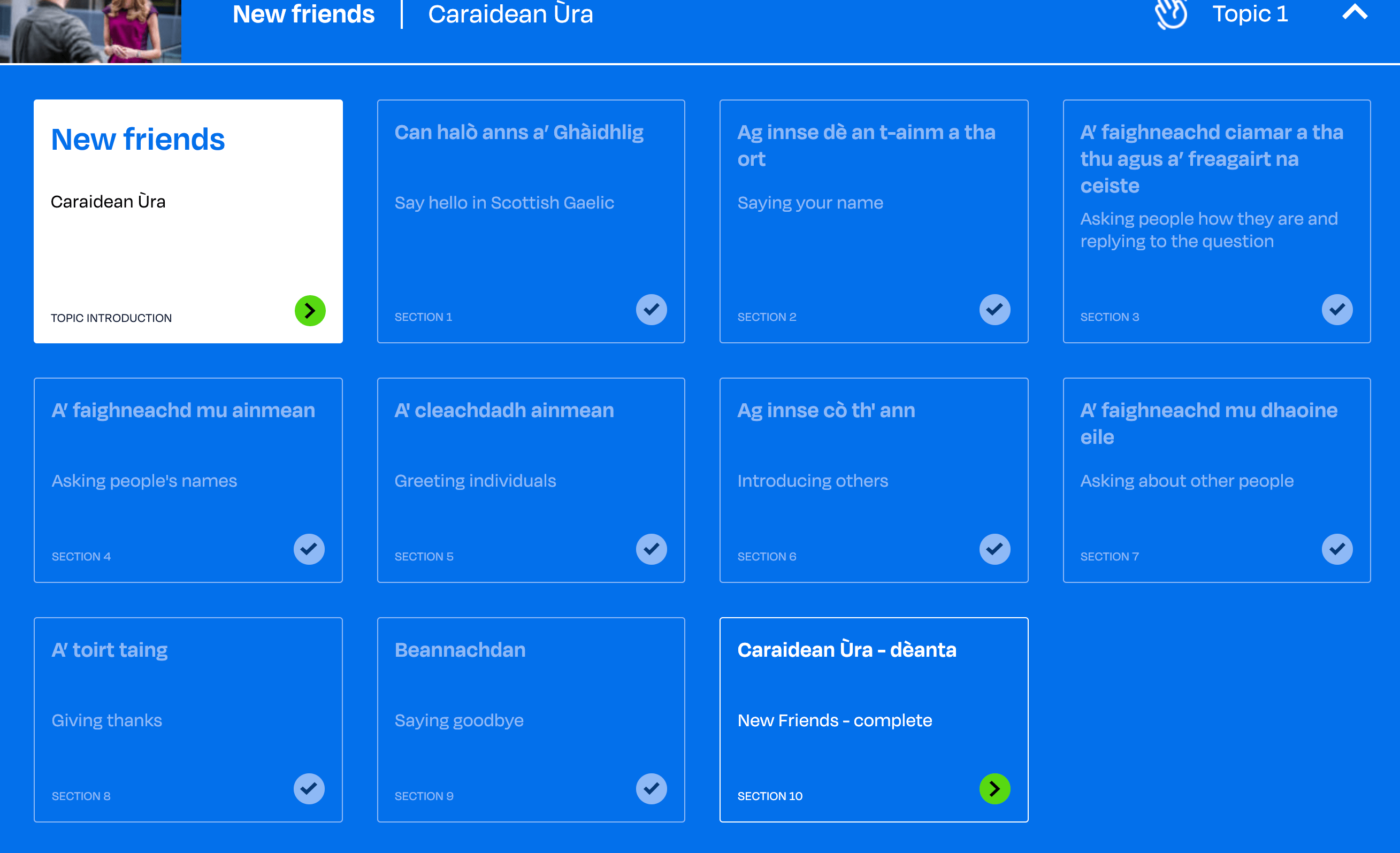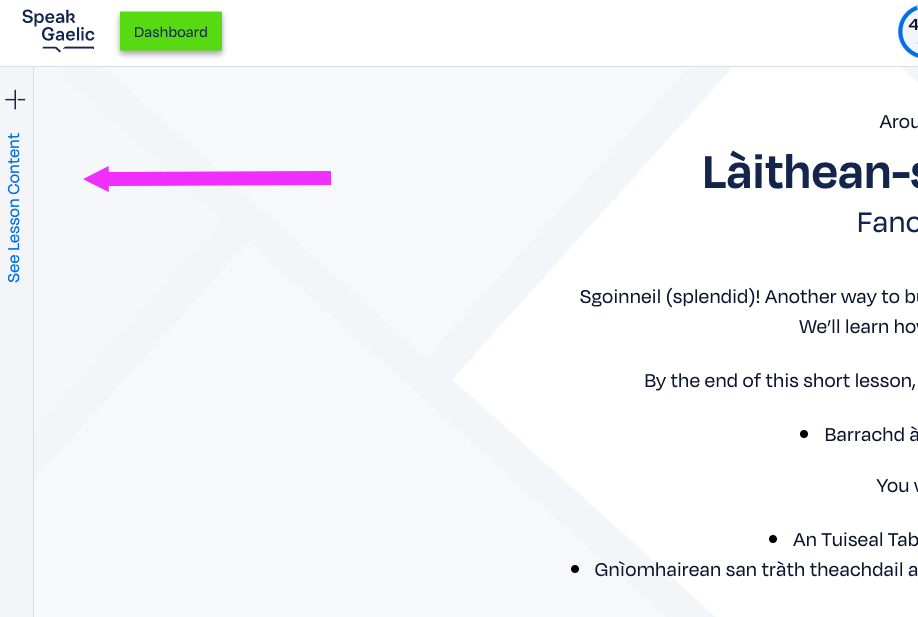Bilingual transcription: Dèanamaid ùrnaigh
Bilingual transcription: Let us pray
Watch this clip where Joy gives us some of her useful tips and favourite phrases.
JOY
In Gaelic, words connected to belief and believing are threaded through everyday speech, perhaps the most common being:
creid, believe, creid;
and a’ creidsinn which is believing, a’ creidsinn.
Bheir sinn sùil air facal no dhà co–cheangailte ri creideamh an toiseach.
ùrnaigh, is a prayer, ùrnaigh.
And to pray is:
dèan ùrnaigh, dèan ùrnaigh;
A phrase you will hear regularly if you are in a church setting is:
Dèanamaid ùrnaigh, let us pray, dèanamaid ùrnaigh. Verbs ending in –amaid are often considered more formal speech in Gaelic and we’ll hear a few of these throughout the programme.
Nise, facal no dhà eile co–cheangailte ri creideamh:
creidmheach is a believer, creidmheach, whereas
eas–chreidmheach is a non–believer, eas–chreidmheach.
To say you believe in something, it’s Tha mi/a’ creidsinn ann an …, I do believe in, or I believe in, tha mi a’ creidsinn ann an.
And to say that you believe in a general non–religious sense it’s:
Creididh mi …, I believe, Creididh mi.
Similarly, I don’t believe can be either:
Chan eil mi/a’ creidsinn …, chan eil mi a’ creidsinn.
AndI will not, or I don’t, believe, Cha chreid mi …, cha chreid mi.
And what about if you want to ask if someone has a belief?
A bheil/creideamh agad? A bheil creideamh agad? to which the answer would be Tha or Chan eil.
You can use creidsinn to ask if you believe someone. Let’s take her as an example, Do you believe her, A bheil thu/ga creidsinn? Using the construction ga along with the verbal noun creidsinn to make A bheil thu ga creidsinn?
And you can use a’ creidsinn ann an … to ask if someone believes in something.
A bheil thu/a’ creidsinn ann an …? Do you believe in …? followed by whatever it is, a bheil thu a’ creidsinn ann an…




